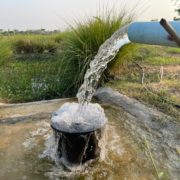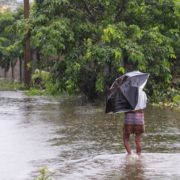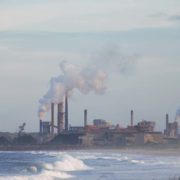Archive | Climate change RSS feed for this section
Climate change, Finance sector development
 Climate change, Environment, Water
Climate change, Environment, Water
 Climate change, Energy, Governance and public sector management
Climate change, Energy, Governance and public sector management
 Climate change, Environment, Governance and public sector management
Climate change, Environment, Governance and public sector management
 Climate change, Environment, Poverty, Social development and protection
Climate change, Environment, Poverty, Social development and protection
 Climate change, Governance and public sector management
Climate change, Governance and public sector management
 Climate change, Environment, Social development and protection
Climate change, Environment, Social development and protection
 Climate change, Economics, Energy
Climate change, Economics, Energy
 Climate change, Economics, Environment
Climate change, Economics, Environment
 Climate change, Finance sector development, Subjects
Climate change, Finance sector development, Subjects

Promoting innovative climate finance in emerging and developing economies

Soaring fossil fuel prices have reminded the world that investment in clean and low-emissions energy projects is needed to achieve net-zero greenhouse gas emissions by mid-century.
The “invisible” water crisis: Groundwater sustainability in Asia and the Pacific

Groundwater overexploitation has raised concerns about resource sustainability and environmental degradation.
COP27, climate change mitigation, and a just transition for developing Asia

Global communities need to come together to act quickly to reduce greenhouse gas emissions and attain net-zero carbon emissions.
Ocean governance and blue finance for revitalizing the blue economy

The impacts of climate change, marine pollution, unsustainable fishing, and rapid, unsustainable coastal development are threatening ocean ecosystems and jeopardizing small island nations and other developing coastal economies.
Protecting victims of climate-induced migration and displacement in South Asia

South Asia is home to a quarter of the world’s population and is extremely susceptible to climate change-induced displacement and migration.
Fixing the agriculture–climate change maladaptation information gap

Further research is needed on the risks associated with adaptation measures that can increase current or future vulnerability to climate change.
Circularity of plastics: From managing waste to generating less waste

With urbanization and the growing global population, much focus has been placed on finding solutions for improving solid waste management as a way to curb the growing amounts of waste being generated. However, governments should instead look at the root cause of the issue and shift toward exploring ways to generate less waste.
Carbon pricing’s potential to reduce emissions in Australia offers lessons for Asia

The COP26 summit in Glasgow in November 2021 brought the global community together to accelerate action toward meeting the goals of the Paris Agreement and the United Nations Framework Convention on Climate Change (UNFCCC). However, achieving these goals will not be possible without effective carbon pricing.
After COP26, developing Asia’s challenge is meeting ambitious climate commitments

Developing Asian countries, such as Indonesia, Kazakhstan, Thailand, and Viet Nam, have announced their net-zero carbon emission targets by mid-century at the United Nations Climate Change Conference (COP26) in Glasgow, Scotland, and financing climate change mitigation has been at the forefront of discussions for making ambitious climate action a reality.
COP26-aligned fiscal policy instruments for boosting Asian green growth, sustainable recovery
By Nella Sri Hendriyetty, Jacqueline Cottrell, Alexander Boden and Misuzu Nakamura. Posted October 5, 2021

The final months of 2021 will be a crucial time for climate policy. At the United Nations Climate Change Conference (COP26) in Glasgow from 31 October to 12 November, countries will need to come forward and show that they take the commitments that they made in Paris seriously and that they will reduce GHG emissions such that we reach net zero by 2050 to meet the climate targets of the Paris Agreement. Carbon pricing and other fiscal policies will play a critical role.


Search
Subscribe / Connect to Asia Pathways
Subjects
- Accelerating Progress in Gender Equality
- Addressing Remaining Poverty and Reducing Inequality
- Agriculture and natural resources
- Capacity development
- Climate change
- Economics
- Education
- Energy
- Environment
- Finance and Innovation
- Finance sector development
- Gender
- Globalization and Economic Stability
- Governance and public sector management
- Health
- Human Capital Development for Inclusive Growth and Shared Prosperity
- Industry and trade
- Information and Communications Technology
- Infrastructure
- Making Cities More Livable
- Miscellaneous
- Population
- Poverty
- Private sector development
- Regional cooperation and integration
- Sanitation
- Social development and protection
- Strengthening Governance and Institutional Capacity
- Subjects
- Transport
- Uncategorized
- Urban development
- Video Blog
- Water
Recent Posts
- The Promise and Perils of Mother Tongue-Based Education
- From Crisis to Resilience: The Evolution of the Banking Sector in Asia and the Pacific
- Tariffs on the Table: What Could Be Asia’s Next Move?
- Investing in Childcare a Win for Women and the Economy
- Flush and Flourish: Upgraded Toilets Can Transform Lives in Rural Asia




Recent Comments